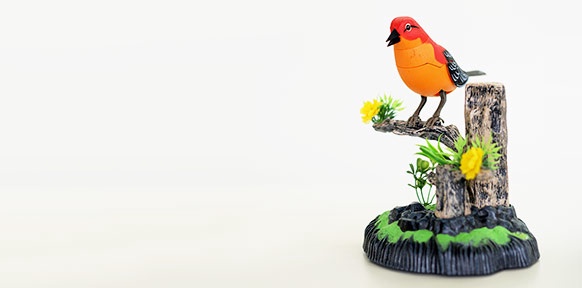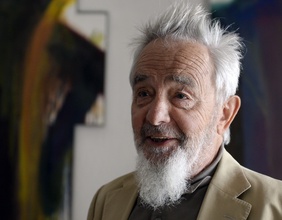Douze Points pour les Oiseaux
Oe1 Birds’ Song Contest
Radio Oe1 is hosting and organizing an alternative and participative Song Contest for all radio listeners. Listeners are asked to upload – oe1.orf.at – an interesting acoustic contribution referring in some way or other to the singing of birds. There is a prize to be won and the result will be presented in the radio music programme "le week-end" on - of course - May 23rd, the day of the broadcasting of the Eurovision Song Contest from Vienna, Austria.
13. Mai 2015, 08:34

Ö1 ruft seine Hörerinnen und Hörer auf, die traditionsreichsten Sänger und Sängerinnen der Welt auf die Bühne und zum Gesangswettbewerb zu bitten.
ORF/URSULA HUMMEL-BERGER
Birds have been singing. People have been listening. For thousands of years.
After so much listening, people began at some time or other to react enthusiastically, and gradually new challenges were found: to remember bird calls, to give bird calls names, to imitate bird calls, to transform bird calls into music, to make mechanical bird call automata, to record bird calls, to catalogue bird calls, to collect bird calls, to choose their favourite bird calls.
To mark the coming big event, Oe1 is now asking radio listeners from all over the world to participate in the Oe1 Birds’ Song Contest by sending bird calls of all kinds. The Austrian radio program Oe1 asks radio listeners to invite the most traditional singers in the world onto the stage for a song contest.
The basic condition for all entries is that they must be your self-made record, your self-selected find, your self-defined confrontation with the phenomenon of bird calls and birdsong. Shortly before 23 May 2015, a jury will select the most original contribution and choose the singing winner of the Oe1 Birds’ Song Contest – and hence the winning contestant too. In the weeks before and above all on the day of the Eurovision Song Contest, we at Oe1 will present many of the singing participants and at the end, of course, the winner of the Oe1 Birds’ Song Contest.
But above all, open your ears, listen to your own world full of bird calls and share it with all other radio listeners, send us your best and most original recordings. No matter how much you live in the city centre or in some remote spot, you are still surrounded by bird calls. At least in the early hours of the morning and as the sun goes down, as it were from dawn till dusk.
For some, birds are seen as the precursor of all civilisation. Instead of spawning and swimming away, birds build nests and care for their young; courtship and the search for a partner produce singing and dancing. Architecture, singing, devotion define a new and at the same time old dividing line in the field of tension between nature and art. From a human perspective, there is a huge and amazingly colourful grey zone between simply and yet aesthetically listening to nature and producing the artificial naturalness that this invites. The result is the complex production of field recordings and other authentic original recordings, baroque clocks with birdsong automata and digital birdsong alarm clocks. And often – now speaking more of art than of artificiality – having listened, the listeners have transferred and continue to transfer the song of the nightingale or the cuckoo into music and hence into their own world. Polyphonic renaissance madrigals are based on the imitation of birdsong in the same way as huge orchestral works by Olivier Messiaen. And, at this point, to say it again: for the Oe1 Birds’ Song Contest, we invite radio listeners to upload their own recordings, namely of anything (singing birds) and/or everything (the acoustic and conceptual trappings) from a microphone or smart phone recording of a solitary mockingbird (or robin, chaffinch or blue tit), through the colourful medley of bird songs to the artistically interpreted find from whatever origin.
Our “godfather of listening”, John Cage, also has a story to tell, although only indirectly related. In the mid-1970s, a lively exchange with the French musicologist and philosopher Daniel Charles led to a trail-blazing book with texts and discussions by and with John Cage. It was first published in French, and when Cage was asked to suggest a title, he wrote back “Pour les Oiseaux”. Years later, the book also actually appeared in English as “For The Birds”. After publication, the French publisher asked sheepishly whether this title was simply meant to be a joke. No, replied Cage, and revealed that it was actually meant to be a play on the semantic meaning of his own name, the cage: “When I was asked to suggest a catchy title, I said: Call it Pour Les Oiseaux. Though the publisher Pierre Belfond accepted this, he asked me somewhat nervously after the publication of the book whether my title was merely a joke. I said: No. I am for the birds, not for the cages.” Hence, even before the Oe1 Birds’ Song Contest, one thing is certain, not a cage but rather
Douze Points pour les Oiseaux.




